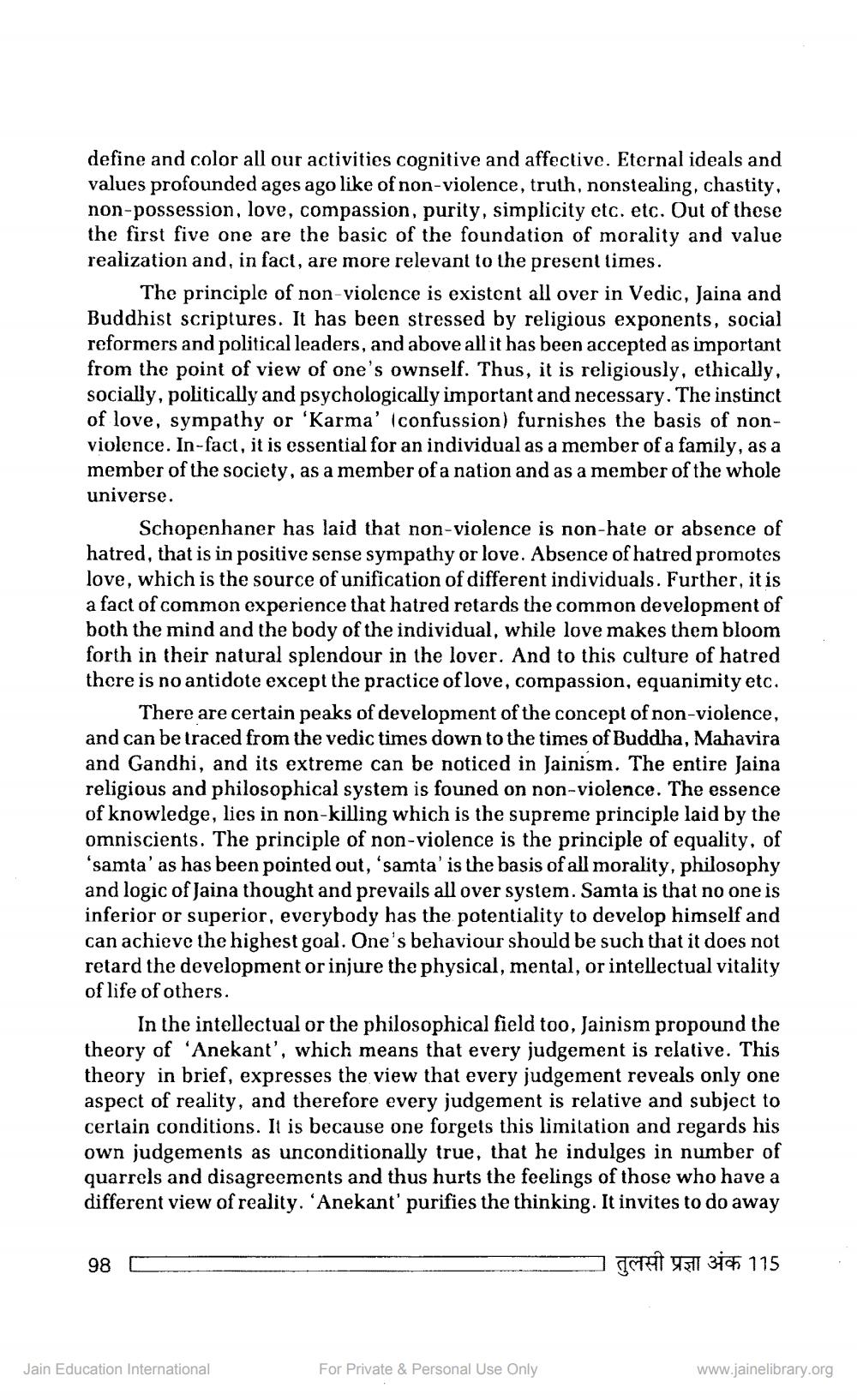________________
define and color all our activities cognitive and affective. Eternal ideals and values profounded ages ago like of non-violence, truth, nonstealing, chastity, non-possession, love, compassion, purity, simplicity etc. etc. Out of these the first five one are the basic of the foundation of morality and value realization and, in fact, are more relevant to the present times.
The principle of non-violence is existent all over in Vedic, Jaina and Buddhist scriptures. It has been stressed by religious exponents, social reformers and political leaders, and above all it has been accepted as important from the point of view of one's ownself. Thus, it is religiously, ethically, socially, politically and psychologically important and necessary. The instinct of love, sympathy or 'Karma' Iconfussion) furnishes the basis of nonviolence. In-fact, it is essential for an individual as a member of a family, as a member of the society, as a member of a nation and as a member of the whole universe.
Schopenhaner has laid that non-violence is non-hate or absence of hatred, that is in positive sense sympathy or love. Absence of hatred promote love, which is the source of unification of different individuals. Further, it is a fact of common experience that hatred retards the common development of both the mind and the body of the individual, while love makes them bloom forth in their natural splendour in the lover. And to this culture of hatred there is no antidote except the practice of love, compassion, equanimity etc.
There are certain peaks of development of the concept of non-violence, and can be traced from the vedic times down to the times of Buddha, Mahavira and Gandhi, and its extreme can be noticed in Jainism. The entire Jaina religious and philosophical system is founed on non-violence. The essence of knowledge, lies in non-killing which is the supreme principle laid by the omniscients. The principle of non-violence is the principle of equality, of 'samta' as has been pointed out, 'samta' is the basis of all morality, philosophy and logic of Jaina thought and prevails all over system. Samta is that no one is inferior or superior, everybody has the potentiality to develop himself and can achieve the highest goal. One's behaviour should be such that it does not retard the development or injure the physical, mental, or intellectual vitality of life of others.
In the intellectual or the philosophical field too, Jainism propound the theory of 'Anekant', which means that every judgement is relative. This theory in brief, expresses the view that every judgement reveals only one aspect of reality, and therefore every judgement is relative and subject to certain conditions. It is because one forgets this limitation and regards his own judgements as unconditionally true, that he indulges in number of quarrels and disagreements and thus hurts the feelings of those who have a different view of reality. ‘Anekant' purifies the thinking. It invites to do away
98
Tot all sich 115
Jain Education International
For Private & Personal Use Only
www.jainelibrary.org




